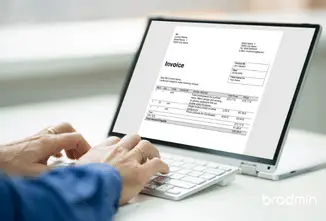Late invoice payments directly affect growing a business.
Late invoice payments have caused UK SMEs to miss out on over £250 billion worth of cash flow, every year. [1]
The £250 billion worth of negative cash flow also includes the costs of companies having to pursue customers’ payments, as well as long payment terms.
- Affect a business’s ability to trade
- Stifle appetite for growth and recruitment
- Lead to insolvencies
On the topic of ‘late payments leading to insolvency’, around 50,000 businesses fail each year and that leads to a £2.5bn shortfall of the UK economy. [2]

SMEs account for 47% of the UK’s private sector turnover. Leaving SMEs to cope with the problems of late payment could harm the UK’s economy. [3]
Apart from these measurable consequences, late payments also affect a business’s willingness to invest or hire. [4]
Research by the Telegraph, on 19th May 2015, relating to British SME’s, suggests that a typical small business spends around 130 hours a year chasing invoices.
Another study by, Plum, done on 13 September 2017, found that different countries spent a significant amount of time chasing late payments.
It varies with countries, for example, the average SME in South Africa would spend 20 days on the task, whereas, in Australia, it would only take 4 days. Regardless, the time taken on such tasks only hinders productivity. [6]
Aside from the lack of productivity, it also takes large sums to recover the invoice payments. Research done by Paul Davies, on 27 July 2015, found that SMEs in the UK spent, in total, £10.8 billion to recover overdue payments.
This translates to an average of almost £11,500 for every SME, which is a remarkable sum. [7]
A study of more than 3000 companies in 11 countries, conducted by Plum, on 7 December 2017, found that the 2 most common impacts of late payments on firms were: [8]
- Inability to invest in their company
- Difficulty in paying their suppliers
In addition, 40% of responders to the Plum surveys also reported that late payments caused impacts on an individual level, such as:
- Reduced pay reviews
- Reduced payrolls
- Smaller bonuses
This, too, can prove disastrous for growing a business as it diminishes morale and productivity.
Why do companies pay invoices late?
Late payments can be a drain on resources as well as a source of operational inefficiencies for SMEs as discussed earlier.
The surveys conducted by, Plum, on 7 December 2017 also asked participants to pick the reasons they had been given by payees for late payments. The options given were:
- Didn’t receive the invoice
- Invoice payment is pending
- Disputing invoice amounts
- Wanting to pay invoices in particular periods of the year
- No reason was given
- Invoices were not paid late
- Other
The top 3 reasons for giving late payments by the paying companies, in each of the 11 countries were put into the following table:
| Country | First top impact | Second top impact | Third top impact |
|---|---|---|---|
| UK | Payment pending (44%) | No reason (35%) | Invoices paid at periods (23%) |
| South Africa | Payment pending (47%) | Invoices paid at periods (25%) | No reason (24%) |
| France | No reason (33%) | Payment pending (23%) | Invoices paid at periods (15%) |
| Ireland | Payment pending (32%) | No reason (21%) | Invoices paid at periods (24%) |
| Australia | No reason (36%) | Payment pending (12%) | Invoices paid at periods (10%) |
| Brazil | No reason (25%) | Invoices paid at periods (20%) | Invoice not received (14%) |
| Canada | No reason (31%) | Payment pending (27%) | Invoices paid at periods (17%) |
| Singapore | Payment pending (46%) | No reason (33%) | Invoices paid at periods (24%) |
| Spain | No reason (31%) | Invoices paid at periods (26%) | Payment pending (24%) |
| USA | No reason (34%) | Payment pending (30%) | Invoices paid at periods (20%) |
| Germany | No reason (42%) | Invoices paid at periods (20%) | Payment pending (16%) |
What can you do about late payments?
As previously mentioned, a total of over £260 billion is up for grabs in the UK alone when it comes to late payment-related issues. [1] [7]
Here is what you can do about late payments – invoice financing.
By using invoice financing, businesses can support their cash flow.
By using invoice finance, when a company invoices their customer, they can get up to 90% of the approved invoice total.
This allows for continual cash flow, without having to wait on a customer to pay an invoice. The 10% is paid whenever the customer settles the balance.
Invoice finance companies now provide more funding than ever before to SMEs, with funds used across the UK crossing £20 billion for the first time, in 2017. [9]
Invoice finance continues to grow in popularity; 21% of UK businesses with a turnover of over £1 million per year use invoice finance. [10]
How can you grow your business with poor cash flow?
Cash flow management is one of the main problems SMEs face. [11]
To mitigate this problem, so that their businesses can develop, SMEs can make use of budgeting. SME leaders in Cape Metropolis, South Africa, regarded cash budgets as important in order to make sound business decisions. [12]
A study conducted in 2013, argued that the reason most SMEs experience cash flow problems is because only a handful of SME leaders prepare cash budgets. Another reason businesses struggled in regards to cash flow, was that their cash budgeting wasn’t done regularly. [13]
Information systems also helped sustain businesses. According to Bruwer and Yolande (2015), a small organization is more likely to attain sustainability if its accounting information system(s) provide relevant, reliable, and recent information to management for better business-related decision-making. [14]
Efficient trade credit management could also improve a company’s profitability. A research paper from June 2010, found that trade credit management was particularly important in the case of small and medium-sized companies, most of whose assets are in the form of current assets. [15]
Takeaway
In conclusion, late payments often prove detrimental to businesses as they result in poor cash flow, which prevents the growth of the business. Therefore it is important to understand why companies delay their payments and what measures one can take to prevent it from affecting their business.





![Apology letter for late payment to supplier [with examples] 5 apology letter for late payment to supplier](https://brodmin.com/wp-content/uploads/2021/09/apology-letter-for-late-payment-to-supplier.webp)
![Invoice payment terms - UK edition 2022 [+ Net calculator] 6 Invoice Payment Terms UK Edition 2021](https://brodmin.com/wp-content/uploads/2021/09/Invoice-Payment-Terms-UK-Edition-2021.webp)





